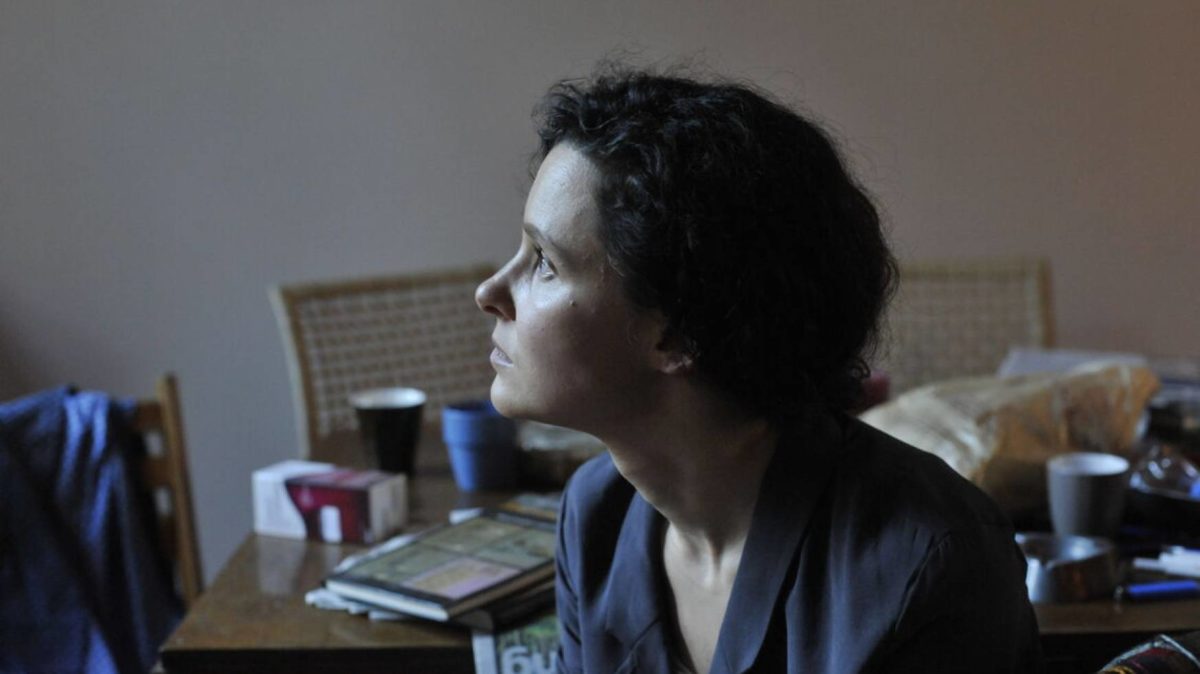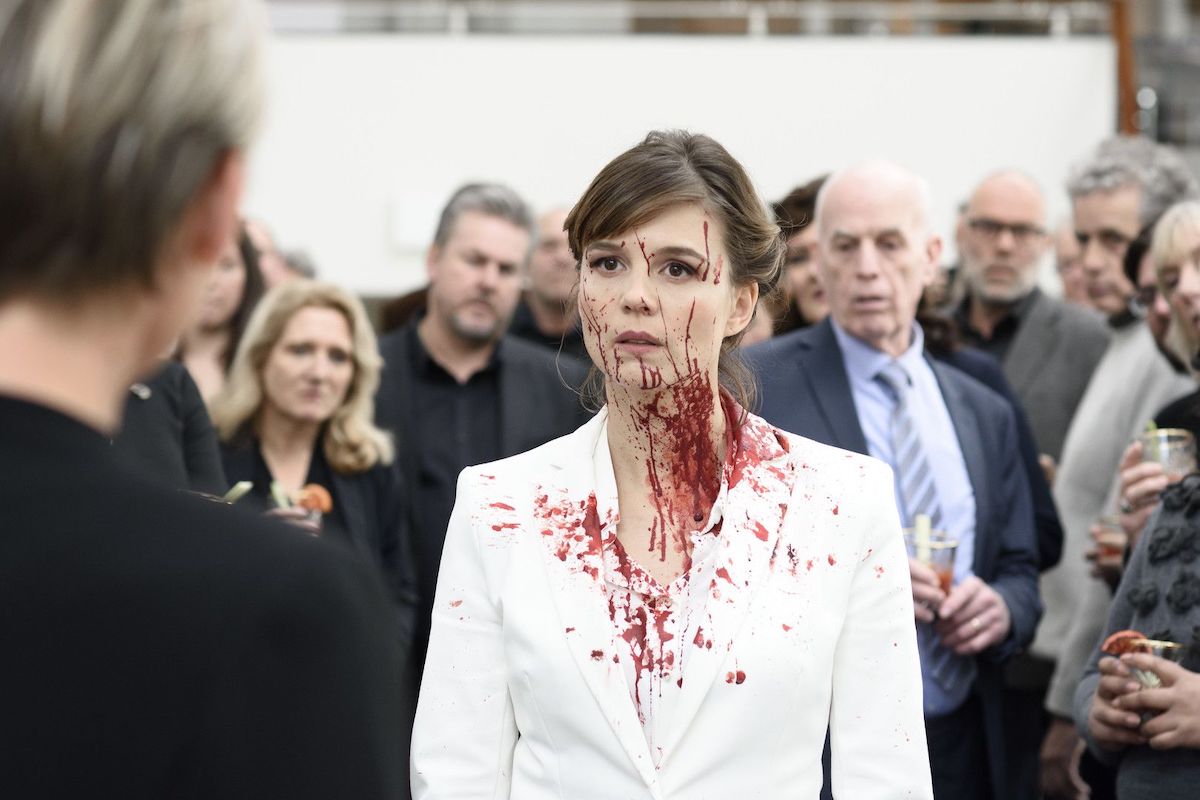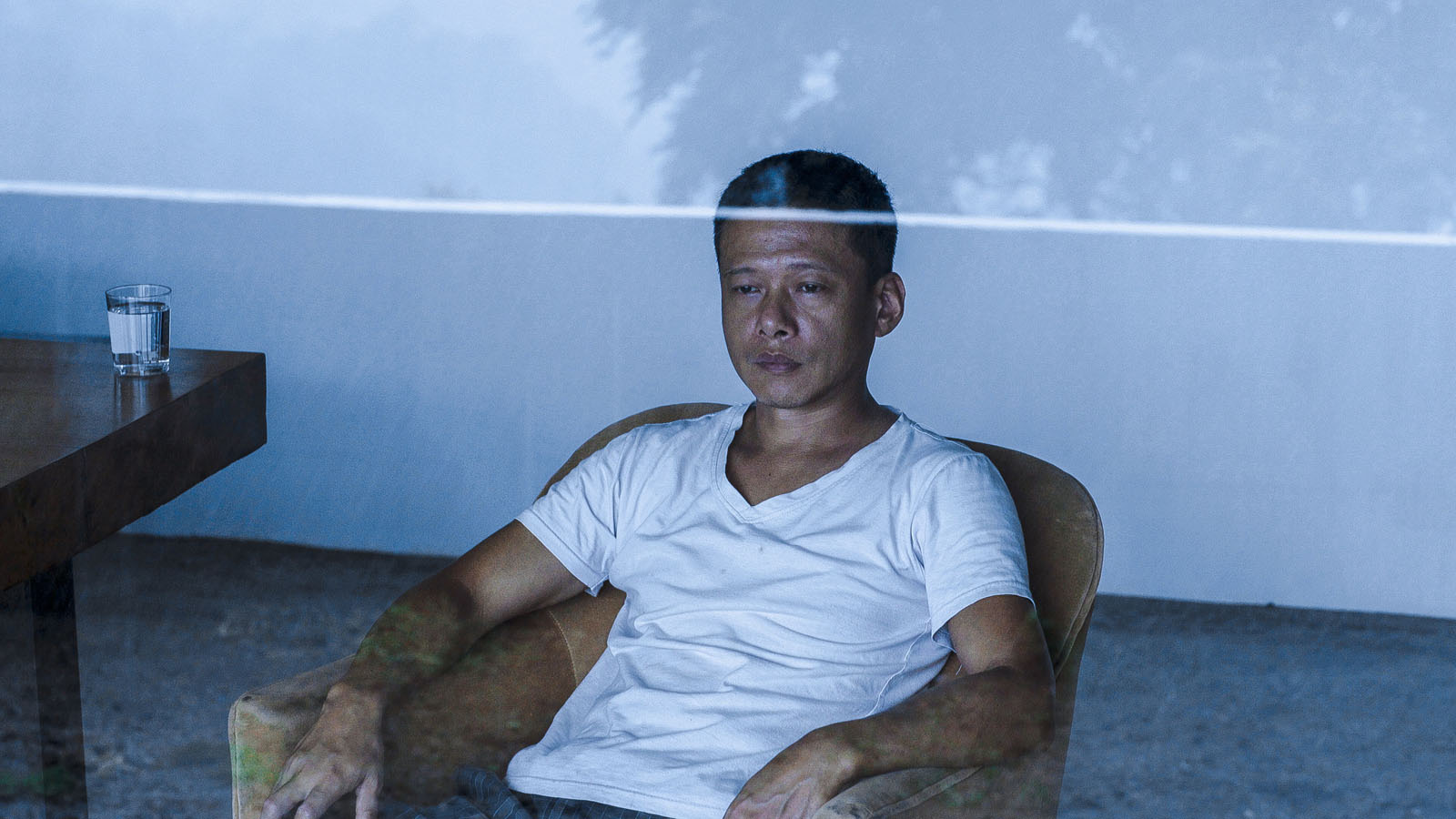With each October comes the Chicago International Film Festival, but with 2020 also comes a pandemic. Yes, CIFF is rightfully falling in the same school as several other festivals this year. It’s virtual! Of course, that means I get to sit giddy and bleary-eyed in my apartment for days on end instead of downtown. Insert a joke here about this being the future liberals want. The future is still a thing, right?
But enough of that. This year, the festival’s 56th iteration is keeping the communal experience alive against all odds. By expanding its Special Presentations program into Special Presentations and Drive-Ins, CIFF is showing a handful of their selections at ChiTown Movies at 2343 S. Throop St. (You can see the festival’s full program here, which includes ticketing instructions.)
Alas, I don’t have a car. That’s okay, though; my first movie turned out to be quite good. It was Sabine Lubbe Bakker & Niels van Koevorden’s Becoming Mona (Grade: B), which has its United States premiere at the festival. It’s also one that’s inherently provocative, not because of its premise, but more because of its approach. It’s minutes in that the young title character (Olivia Landuyt) and her brother, Alexander (Stefan Perceval), learn that their parents have died in an accident. Soon afterward, they find themselves in the care of the neurotic Marie (Wine Dierickx) and her husband, Vincent (Tom Vermeir).

It’s clear the couple is getting a kid to save their marriage, and it’s clear even Mona can tell. She’s just trying to hide it, the camera wandering around long takes of her face as if the movie itself is dissociating. Strong performances help as well, but the most impressive part is how the first of three sections segues into Mona as an adult (Tanya Zabarylo) as she attempts to channel her dysfunctional upbringing into performing. The character’s presence is really quite seamless.
Where the movie really finds its texture, though, is in Bakker & van Koevorden’s script. There’s a clear if somewhat uneven look at how those around Mona objectify her, whether it’s the chauvinism of the art world or misogyny in each domestic setting. Her eventual boyfriend (Valentijn Dhaenens) relegates her into a muse; her adoptive parents keep her as a scapegoat. However, Becoming Mona doesn’t exploit its fatalism or even its antinatalist streak. It observes the pain and coping instead, and it does so without seeing them as mutually exclusive.
With that, it only felt fitting for the next movie to consist of multiple threads that do felt mutually exclusive. That would be the U.S. premiere of Shahram Mokri’s Careless Crime (Grade: B+). This one sure is a challenge. Lots of that has to do with how the movie’s successes only become apparent after the fact. Its structure is its story, and it folds in on itself as much as it stacks its pieces on top of one another.

First, Mokri and co-writer Nasim Ahmadpour provide some real-life context. It was 1978 when anti-Shah extremists set fire to a movie theater in Abadan, Iran as a push against Western hegemony, killing over 400. Now it’s current day, but this isn’t a movie about a true story. In Careless Crime, audiences are coming together to see an eponymous movie inspired by the tragedy, which itself follows a group getting ready to watch Masud Kimiai’s The Deer. (The real massacre occurred during a showing of Kimiai’s film.) Mokri & Ahmadpour weave scenes of the fictional feature with a nonlinear presentation of their movie’s “reality,” all while four new extremists plan to replicate the 1978 arson.
Confused? Just go with it. Careless Crime is like a Chinese finger trap. The more you try to dissect it, the harder it is to grasp all its pieces. It’s an effort that takes a great amount of patience but is incredibly rewarding, and that’s not just in its structure. Mokri clearly knew someone would make a movie about this event. Instead, he made a movie about its limits and consequences. It balances iconography, truism, and showy direction until each thread differently reflects another. It’s not too often a movie trusts its audience this much, and the result is one of the most meta movies this side of Mohsen Makhmalbaf’s A Moment of Innocence.
Alas, the day’s third pick marked a dip in quality. In yet another of the festival’s U.S. premieres comes Ivo Van Aart’s The Columnist (Grade: C), an attempt at skewering online trolls. Our focus is Femke Boot (Katja Herbers), a journalist and aspiring novelist with writer’s block. When we first meet her, she’s on a talk show debating Steven Dood (Bram van der Kelen), an insufferable personality and human eyeliner palette. As per usual, her appearance—but especially Steven’s comments—cues the incels to rise from the woodwork.

She’s had to deal with trolls before, but it’s never been this bad. Insults range from rape threats to murder fantasies to accusations, which the police of course do nothing about. With that, she hunts the trolls down, but Daan Windhorst’s script is never too keyed into Internet culture or the themes he and director Ivo van Aart try to address. It finds its mix of satire and black comedy in the last 15 minutes, but by trying to end on a bang, The Columnist just softens the blow.
And there are a handful of more topics here too. In the main subplot, Femke’s daughter, Anna (Claire Porro), is working on a school project in favor of the public’s ability to criticize the government. It’s a decent parallel to Femke’s arc, but The Columnist turns its peripheral characters into voice boxes to force in ideas rather than weave them into the narrative. More disappointing is the filmmakers’ inability to understand Femke beyond the surface; some of her decisions, namely a rushed relationship with Steven, are damn near antithetical to her character. If the first half is myopic, the last sequence ends the movie before it begins.
That brings us to the last movie of the day, and while we’re just starting the festival, I’d be surprised for something to surpass Days (Grade: A-). Tsai Ming-liang’s latest makes its Midwest premiere here, and it’s a welcome one too. Kang (Lee Kang-sheng) is a wealthy man who quietly spends his days in pain, lying in his house or seeking massages and acupuncture. Non (Anong Houngheuangsy), on the other hand, lives in a tiny flat. They go about their lives in metropolitan Taiwan, and then they meet. Virtually every gesture, no matter how menial or small, helps remove the screen between subject and audience.
On the surface, Tsai’s film fits the lexicon of working directors such as Mauro Herce or, in some ways, Bi Gan. Almost every shot is minutes-long and static, the action onscreen muted enough to trick viewers into projecting themselves into each scene. Dialogue is exceedingly rare and superfluous when it does occur. (Days is “intentionally unsubtitled,” an opening title card reads.) Add it all together and out comes an inescapable sense of intimacy, largely thanks to how Tsai uses urban life and its class structure to comment on heteronormativity. Yes, Days is a queer film. It’s not apparent until over an hour in, but it’s when Kang and Non spend time together that their respective lives congeal. Here’s a world where the distance between the affluent and the working class prevents any true relationship from forming. It’s especially apparent when said relationship is gay, even more so when each person’s life only appears as it does from the outside. The loneliness is crushing when it isn’t hypnotic. With Days, Tsai turns the audience into the lonely and makes them see the world from the inside out.

